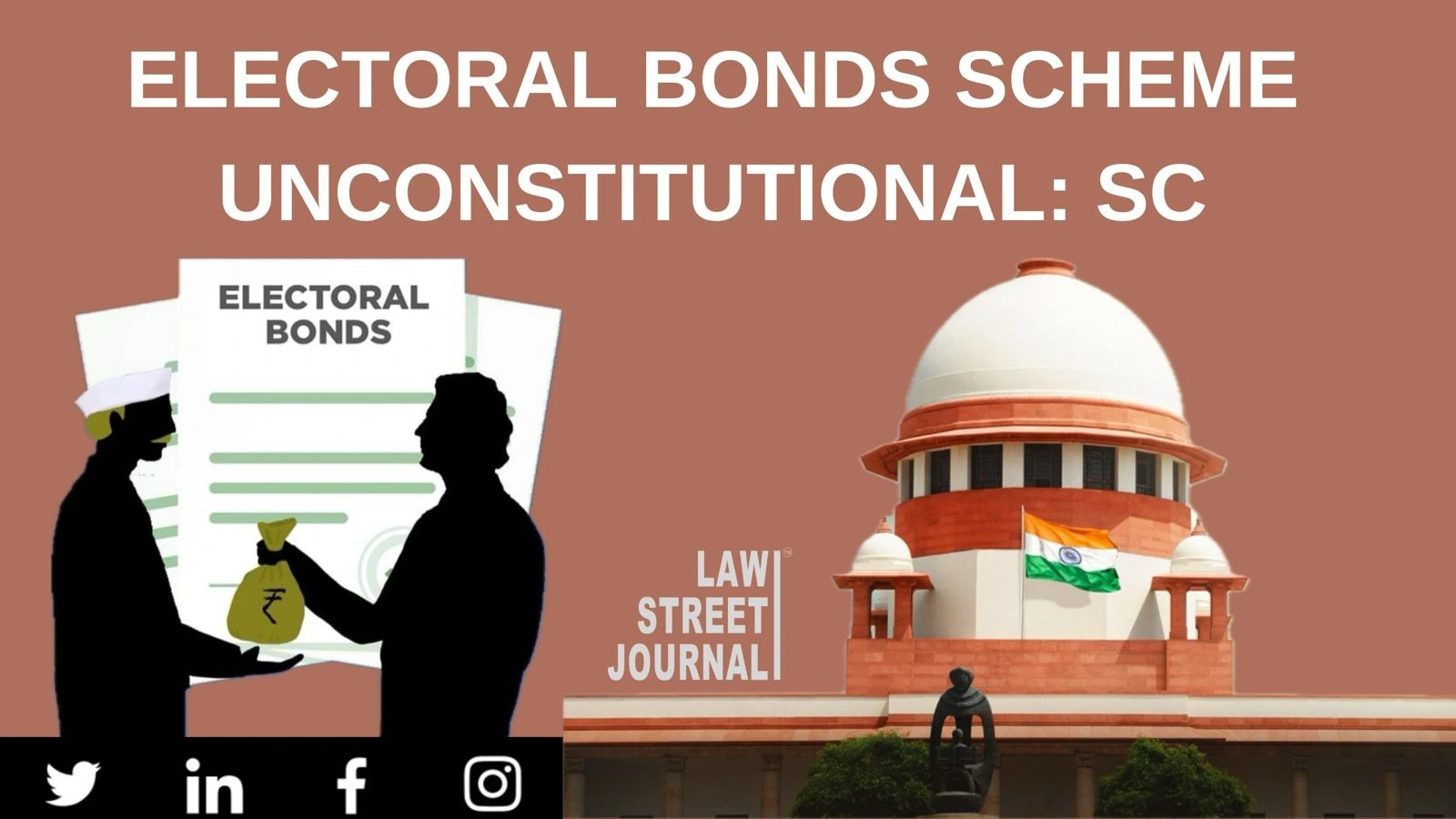NEW DELHI: In big decision, the Supreme Court on Thursday struck down the Electoral Bonds Scheme introduced in 2018 for contribution to political parties as unconstitutional for not disclosing the names of large donations by the companies, opening it to quid pro quo arrangement.
The top court held it to be violative of the Right to Information of the citizens and treating large companies and individual contributors alike.
A bench of Chief Justice of India D Y Chandrachud and Justices Sanjiv Khanna, B R Gavai, J B Pardiwala and Manoj Misra held the scheme as unconstitutional for its non disclosure provision and for being violative of right to information under Article 19(1)(a) and Article 14 of the Constitution.
The court said financial support to political parties through the scheme can lead to quid pro quo arrangement.
It also said the Electoral Bonds Scheme is not the only way to curb black money and the infringement to the Right to Information in the scheme is not justified.
The five-judge bench have rendered two opinions but the conclusion was unanimous agsinst the scheme.
After reading out the excerpts, the CJI directed the State Bank of India to stop issuing bonds, disclose all details within three weeks to the Election Commission.
The court directed the poll panel to publish all details on its website within one week. It also ordered the political parties to return the bonds which are within 15 days of validity and not been encashed.
The bench said that the scheme violated the right to information of citizens for non disclosure clause, about possible quid pro quo.
It held that the scheme gave primacy to right to informational privacy as against the right to information.
"A company has more graver influence on the political process than contributions by individuals. Contributions by companies are purely business transactions. Amendment to Section 182 Companies Act is manifestly arbitrary for treating companies and individuals alike," the bench said.
The bench also said the scheme does not recognise the harm of allowing loss-making companies to contribute due to quid pro quo.
The court held that the Union government has not been able to establish the measure of non disclosure under Clause 7(4) of the scheme is the least restrictive provision.
The court, however, said it is not that all political contributions are made with the intent to alter public policy as students, daily wagers, teachers etc also contribute. To not grant umbrella of privacy to political contributions only because some contributions are made for other purposes is not impermissible, it added.
A batch of petitions wad filed by NGO Association for Democratic Reforms, CPI(M), MP Congress leader Jaya Thakur and others, challenging the validity of the scheme.
The Union government said the scheme curbed infusion of black money as all contributions to political parties were received through banking channels by complying with KYC norms.

















